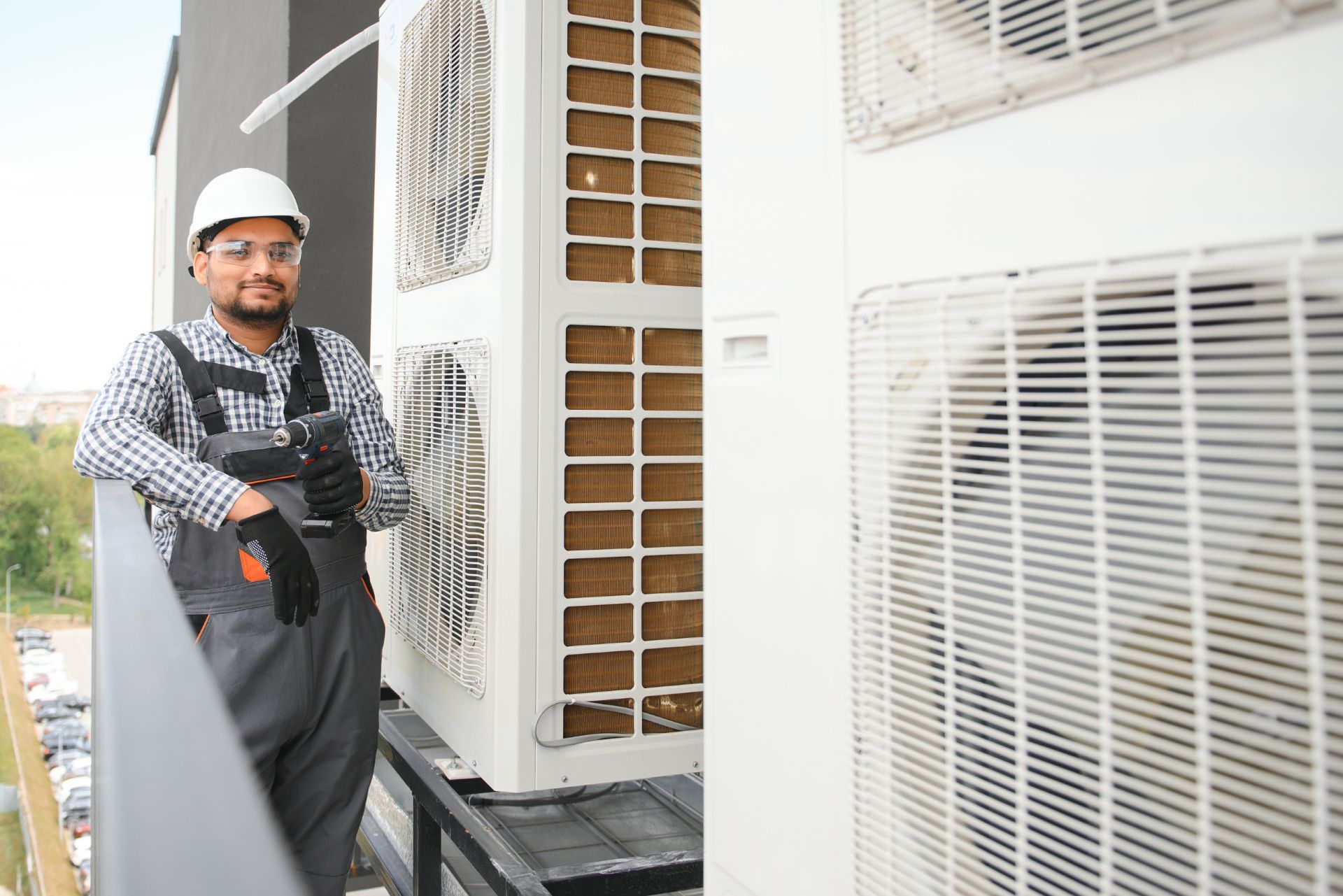Operating as an HVAC contractor in Florida involves navigating a unique set of challenges, from the state’s humid climate to strict regulatory requirements. One critical aspect that often gets overlooked until it’s too late is securing the right insurance coverage. Whether you’re a seasoned professional or just starting your HVAC business, understanding Florida HVAC contractor insurance is essential to protect your livelihood, comply with state laws, and build trust with your clients.
Why Is HVAC Contractor Insurance Crucial in Florida?
Florida’s climate, characterized by high humidity, hurricanes, and frequent storms, creates a high demand for HVAC services but also increases the risks associated with the trade. HVAC contractors face exposure to property damage, bodily injury, equipment theft, and even lawsuits. Insurance acts as a financial safety net, helping contractors manage these risks effectively.
According to the Florida Department of Business and Professional Regulation, HVAC contractors must adhere to specific licensing and insurance requirements to operate legally. Without proper insurance, contractors risk fines, license suspension, or even business closure. Moreover, many clients and commercial projects require proof of insurance before awarding contracts, making it a business necessity beyond legal compliance.
The High Stakes of Operating Without Insurance
Consider this: a single accident involving property damage or a worker injury can lead to lawsuits costing tens of thousands of dollars or more. Without insurance, these costs come directly out of the contractor’s pocket, potentially bankrupting the business. For example, a slip-and-fall accident at a job site or damage caused by faulty installation can result in significant liability claims.
Insurance not only covers these unexpected costs but also enhances your business credibility. Clients are more likely to trust and hire contractors who demonstrate professionalism through proper insurance coverage. Additionally, having comprehensive insurance can open doors to larger projects, as many commercial clients require contractors to carry specific types and amounts of insurance before considering them for significant contracts. This requirement can serve as a competitive advantage, allowing insured contractors to bid on more lucrative projects that uninsured contractors cannot access.
Furthermore, the unique challenges posed by Florida's weather conditions necessitate specialized insurance options tailored for HVAC contractors. For instance, coverage for equipment damaged during severe weather events, such as hurricanes, is essential for maintaining operational continuity. Contractors may also consider adding coverage for business interruption, which can protect against loss of income due to unforeseen events that halt operations. In a state prone to natural disasters, these additional layers of protection can be invaluable in ensuring long-term business sustainability.

Types of Insurance Every Florida HVAC Contractor Should Consider
HVAC contractors in Florida should evaluate multiple types of insurance to ensure comprehensive protection. Each type addresses different risks and legal requirements, which are crucial for maintaining a successful and sustainable business in a competitive market.
General Liability Insurance
This is the cornerstone of any contractor’s insurance portfolio. General liability insurance covers third-party bodily injury, property damage, and personal injury claims. For HVAC contractors, this could include a customer slipping on a wet floor or accidental damage to a client’s property during installation.
In Florida, general liability insurance is often required by clients and sometimes by law, especially for commercial projects. Coverage limits vary, but a typical policy might offer $1 million per occurrence and $2 million aggregate coverage. It’s important for contractors to regularly review their policies to ensure they meet the evolving needs of their business and comply with any new regulations or client requirements.
Workers’ Compensation Insurance
Florida law mandates that businesses with four or more employees carry workers’ compensation insurance. This coverage provides medical benefits and wage replacement to employees injured on the job. Given the physical nature of HVAC work, injuries such as falls, burns, or electrical shocks are common risks.
Even if your business has fewer than four employees, obtaining workers’ compensation insurance is highly recommended. It protects your workers and shields your business from potential lawsuits related to workplace injuries. Moreover, having this insurance can enhance your reputation as a responsible employer, making it easier to attract and retain skilled technicians who value workplace safety.
Commercial Auto Insurance
Many HVAC contractors rely on vehicles to transport tools, equipment, and technicians. Personal auto insurance typically does not cover vehicles used for business purposes, making commercial auto insurance essential.
This insurance covers liability and physical damage related to business vehicle use, including accidents, theft, and vandalism. Given Florida’s busy roads and high accident rates, this coverage is vital for protecting your assets and employees. Additionally, some policies offer coverage for rental vehicles, which can be beneficial during repairs or when expanding your service area temporarily.
Tools and Equipment Insurance
HVAC contractors invest heavily in specialized tools and equipment. Tools and equipment insurance protects against loss, theft, or damage to these valuable assets. This coverage can be purchased as a standalone policy or added as an endorsement to a general liability or commercial property policy.
Considering the cost of replacing HVAC tools and equipment, this insurance can save contractors thousands of dollars in unexpected expenses. Furthermore, many policies allow for coverage of equipment in transit, which is particularly useful for contractors who frequently move between job sites. This added layer of protection ensures that your investment in tools is safeguarded, allowing you to focus on delivering quality service without the constant worry of potential losses.
Professional Liability Insurance (Errors and Omissions)
While general liability covers physical damages and injuries, professional liability insurance protects against claims arising from mistakes, negligence, or failure to perform professional duties. For HVAC contractors, this might include incorrect system design or improper installation leading to system failure or property damage.
This coverage is particularly important for contractors who provide consulting, system design, or maintenance services where errors could cause significant financial loss to clients. In an industry where precision is key, having professional liability insurance not only mitigates financial risk but also enhances your credibility with clients, as it demonstrates a commitment to professionalism and accountability in your work.
Legal and Licensing Insurance Requirements in Florida
Understanding Florida’s legal requirements for HVAC contractor insurance is crucial to avoid penalties and ensure smooth business operations. The state's regulations are designed to protect both contractors and consumers, ensuring that all parties are safeguarded against potential risks associated with HVAC work.
State Licensing Board Requirements
The Florida Construction Industry Licensing Board (CILB) oversees the licensing of HVAC contractors. To obtain or renew a license, contractors must provide proof of insurance, including general liability and workers’ compensation where applicable. This requirement not only protects the contractor but also the clients they serve, as it ensures that any damages or injuries that may occur during the course of work are adequately covered.
Failure to maintain required insurance can lead to license suspension or revocation, effectively halting your ability to operate legally in the state. Additionally, contractors may face fines or legal action if they are found to be operating without the necessary coverage, further complicating their business operations. It is essential for contractors to stay informed about any changes in regulations that may affect their insurance obligations.
Contractual Insurance Requirements
Many commercial clients and government contracts stipulate minimum insurance coverage levels. These contracts often require certificates of insurance as proof before work begins. This means that HVAC contractors must not only be aware of their own insurance needs but also the specific requirements dictated by the contracts they enter into. Understanding these nuances can help prevent delays in project commencement and foster trust with clients.
Being proactive by securing the appropriate insurance not only ensures compliance but also positions your business as a reliable and professional contractor in a competitive market. In addition to general liability and workers' compensation, some contracts may require specialized coverage, such as professional liability insurance, which protects against claims of negligence or failure to deliver services as promised. By investing in comprehensive insurance coverage, HVAC contractors can enhance their reputation and appeal to a broader range of clients, ultimately contributing to long-term business success.
How to Choose the Right Insurance Provider for Your HVAC Business
Selecting the right insurance provider is as important as choosing the right coverage. The right insurer will understand the specific risks associated with HVAC contracting in Florida and offer tailored solutions.
Look for Industry Expertise
Insurance companies or brokers specializing in construction or HVAC industries are better equipped to assess your risks and recommend appropriate coverage. They can also help you navigate Florida’s regulatory landscape and ensure compliance. Having an insurer who understands the intricacies of HVAC work, such as the potential for equipment failure or liability issues related to installation, can make a significant difference in the protection you receive.
Moreover, industry-specific insurers often have established relationships with local contractors and suppliers, which can provide additional insights into the unique challenges faced by HVAC businesses in your area. This expertise can be invaluable when it comes to tailoring your policy to include coverage for specialized equipment or seasonal fluctuations in demand.
Compare Coverage Options and Costs
Not all insurance policies are created equal. It’s essential to compare coverage limits, deductibles, exclusions, and premiums from multiple providers. Cheaper policies may lack critical protections, while more expensive ones might offer unnecessary coverage. It’s important to assess your specific business needs and risks to determine what coverage is essential for your operations.
Request detailed quotes and ask questions about what is and isn’t covered. Understanding these nuances can prevent costly surprises later. Additionally, consider the potential costs of downtime due to equipment failure or liability claims; sometimes, investing in a more comprehensive policy can save you money in the long run by ensuring you’re adequately protected against these risks.
Check Financial Stability and Customer Service
Choose insurers with strong financial ratings from agencies like A.M. Best or Standard & Poor’s. This ensures they can pay claims promptly when needed. Additionally, good customer service is vital for smooth claims processing and ongoing support. Look for reviews and testimonials from other HVAC contractors to gauge the insurer's reputation in the industry.
Furthermore, consider the claims process itself. A provider that offers a user-friendly online claims submission system or a dedicated claims representative can significantly ease the stress associated with filing a claim. Understanding the insurer's response times and support options can also provide peace of mind, knowing that help is readily available when you need it most. This level of support can be crucial during peak seasons when your business is at its busiest, and any disruption could have significant financial implications.

Cost Factors and How to Manage Your Insurance Premiums
Insurance premiums for HVAC contractors in Florida vary widely based on several factors. Understanding these can help you manage costs effectively.
Key Factors Influencing Premiums
- Business Size: Number of employees and annual revenue impact risk exposure.
- Coverage Limits: Higher limits usually mean higher premiums.
- Claims History: A history of frequent claims can increase premiums.
- Location: Operating in high-risk areas prone to hurricanes or theft may raise costs.
- Safety Practices: Implementing safety programs and training can lower risk and premiums.
Tips to Lower Your Insurance Costs
Contractors can take several steps to reduce insurance premiums without compromising coverage:
- Bundle Policies: Purchasing multiple policies from the same insurer can lead to discounts.
- Increase Deductibles: Opting for higher deductibles lowers premiums but requires readiness to pay more out-of-pocket during claims.
- Maintain a Clean Claims Record: Avoiding accidents and promptly addressing risks helps keep premiums down.
- Invest in Safety Training: Demonstrating commitment to workplace safety can qualify you for discounts.
Common Insurance Claims Faced by Florida HVAC Contractors
Understanding common claims can help contractors prepare and mitigate risks effectively.
Property Damage Claims
Accidental damage to a client’s property during installation or repair is a frequent cause of claims. For instance, a misplaced tool might damage flooring or walls, or refrigerant leaks could harm property.
Injury Claims
Workplace injuries to employees or third parties, such as slips, falls, or electrical shocks, often result in workers’ compensation or general liability claims. Proper safety protocols and insurance coverage are essential to handle these incidents.
Equipment Theft or Damage
HVAC tools and equipment are valuable and often targeted for theft. Weather-related damage, especially during hurricane season, is another risk. Tools and equipment insurance helps recover these losses.
Professional Liability Claims
Claims related to errors in system design or installation can arise if the HVAC system fails or causes damage. Professional liability insurance protects against these financial exposures.
Steps to Get Insured as a Florida HVAC Contractor
Securing the right insurance coverage involves a few key steps tailored to your business needs.
Assess Your Risks
Begin by evaluating the specific risks your business faces, including the size of your workforce, types of projects, and equipment used. This assessment guides the selection of appropriate coverage types and limits.
Gather Required Documentation
Prepare necessary documents such as your business license, contractor license, financial statements, and any existing insurance policies. These will be needed when applying for new insurance.
Request Quotes and Consult Professionals
Contact multiple insurance providers or brokers who specialize in contractor insurance. Discuss your business operations and obtain detailed quotes. Professional advice can help tailor coverage to your needs.
Review and Purchase Policies
Carefully review policy terms, coverage limits, exclusions, and premiums before purchasing. Ensure the policy meets Florida’s legal requirements and your business needs.
Maintain and Update Your Coverage
Regularly review your insurance policies, especially when your business grows or changes. Update coverage to reflect new risks, additional employees, or expanded services.
Conclusion
Florida HVAC contractor insurance is not just a regulatory formality but a critical component of a successful and sustainable business. The right insurance coverage protects contractors from financial devastation caused by accidents, injuries, or lawsuits. It also enhances credibility and opens doors to more lucrative contracts.
By understanding the types of insurance available, legal requirements, and how to select the best provider, HVAC contractors in Florida can safeguard their businesses and focus on delivering quality service in a challenging and competitive market.
Investing time and resources into proper insurance coverage today can save your business from costly setbacks tomorrow.

Contact Us


